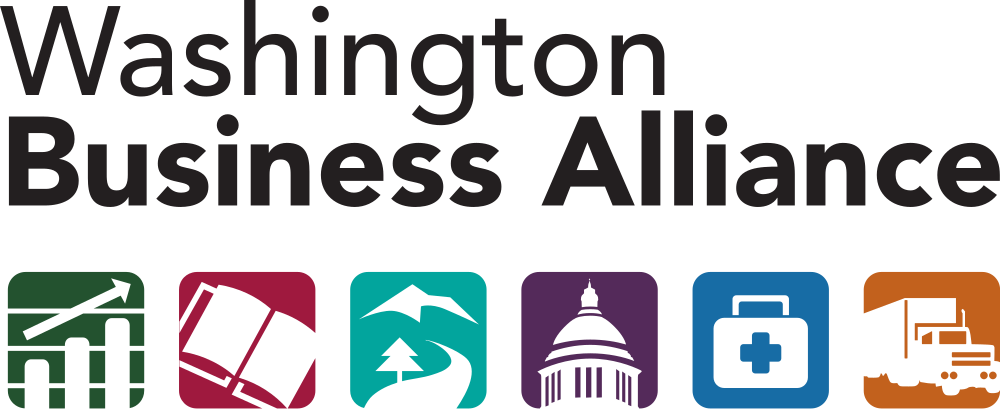After extending three special sessions past the regular cut off, the 2015 legislative session has finally come to a close. The budget agreement established major new funding for transportation infrastructure and the first reduction in higher education tuition in decades. The Washington Business Alliance focused its energy on advancing key PLAN Washington priorities in its environment chapter, and contributed to other important debates in the Legislature. Here we score the outcome of the legislative session for alignment with PLAN Washington’s goal of making Washington a top 5 state by 2025.
Postsecondary Education
Due to stronger than expected economic performance state revenues came in nearly $3 billion higher than the previous two-year budget cycle. While other priorities contended for the new funds, the lion’s share of investment went to satisfying the State Supreme Court’s K-12 funding mandate, and a historic reduction in higher education tuition.
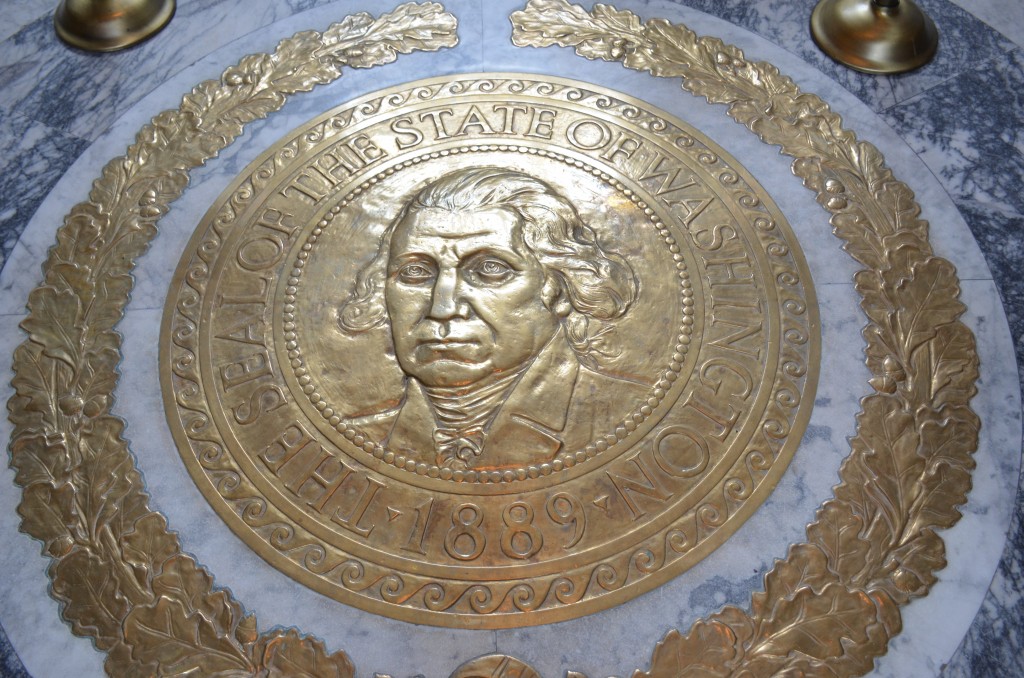
The AP’s Donna Gordon Blankinship described the plan to rollback 15-20 percent of tuition at the state’s public universities as “a rare move that national experts believe could influence other states as they come out from under the recession.” With states like Oregon moving to make community college free and new interest brewing at the national level, legislators will undoubtedly face pressure to make college even more affordable in the near future.
In another move to alleviate the burden of rising student debt, the Washington Business Alliance testified before the House Business & Financial Services Committee in support of Representative Hans Zeiger’s (Puyallup) bill to create an alternative to traditional student loans, called Income Share Agreements. The Washington Business Alliance also published an analysis of this innovative concept on its blog, and will be working over the interim to further advance this idea.
The budget agreement honored negotiated state employee and teacher Cost of Living Adjustments (COLA), to the tune of 3% in FY 2016 and 1.8% in FY 2017. In an editorial to the Puget Sound Business Journal, the Washington Business Alliance encouraged legislators to equitably include COLA increases for teachers at the state’s community and technical colleges, which ultimately became a reality.
K-12 Education
Led by Representatives Drew Hansen, (Bainbridge Island) and Chad Magendanz (Issaquah), a bipartisan coalition passed new commitments to computer science education in K-12. “Seventy percent of job growth is in computer science, yet only ten percent of our high schools offer computer science classes,” Magendanz explained. HB 1813 adopts statewide computer science teaching standards, while HB 1570 expands scholarship eligibility for educators to pursue professional development in computer science, and directs creation of an endorsement for educators interested in teaching computer science. SHB 1445, which did not pass, would have allowed for two years of computer science to be counted as a foreign language requirement in Washington high schools. The Washington Business Alliance published a detailed analysis on the significance of expanding computer science into K-12 curriculum.
In an effort to meet its McCleary obligations, the new two-year budget includes significant expansion of K-12 spending. State government will spend over one-third more per student during the next fiscal year than it did before the 2012 state Supreme Court ruling. The new money will target all-day kindergarten, school supplies, and K-3 class size reductions.
The Washington Business Alliance took a look at closing both the skills and achievement gap through improved Career & Technical Education (CTE) in high schools. Across the country high school has become increasingly college-track oriented, often at the expense of viable alternatives to 4-year college degrees. According to the Association for Career and Technical Education, which closely monitors CTE in all 50 states, 81 percent of dropouts say relevant, real-world learning opportunities would have kept them in high school. Unfortunately, minimal investment was made to support CTE, as early learning and class size reduction overshadowed the potential of CTE to boost graduation rates and support family wage jobs.
The Washington Business Alliance will continue to advocate for increasing the value of a high school diploma, paving pathways into the workforce that begin before college, and thinking beyond early learning to address the achievement gap.
Workforce Development
Recent debates about the possibility of a statewide minimum wage stirred up corollary conversations about empowering workers to add value to the new economy through an accessible and industry-aligned workforce development system. Washington’s extensive network of community and technical colleges are one of the best asset the state has to equip residents with the skills to earn family wage jobs. However, there wasn’t much action on the issue.
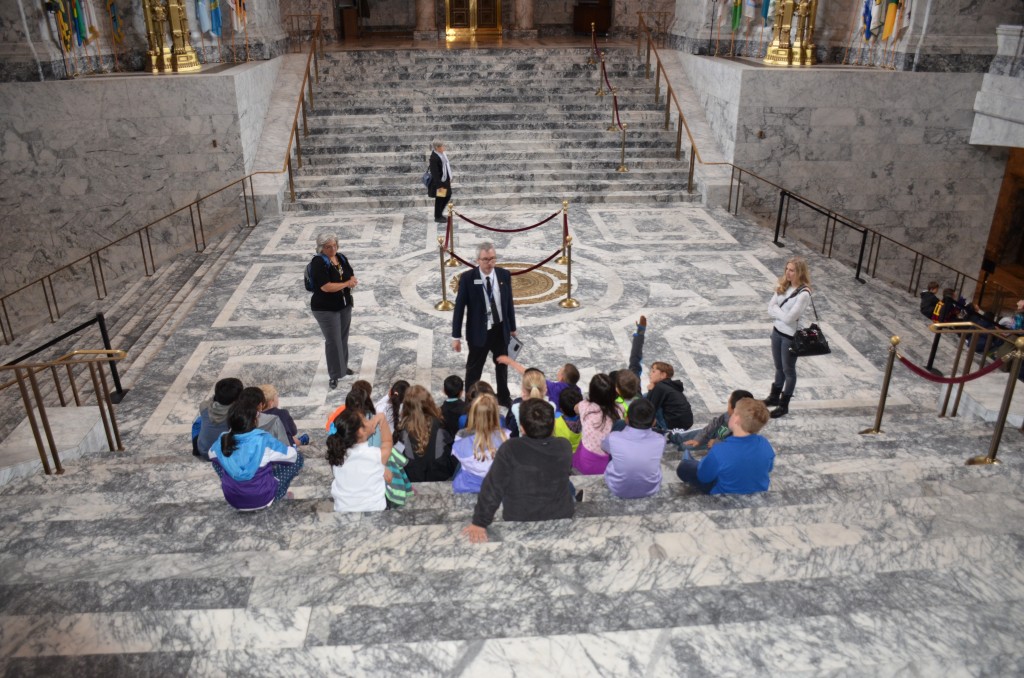 Notably, SB 5746 added Everett Community College to the list of authorized training programs that may participate in the Aerospace Training Student Loan Program. This program provides low-interest loans to students who are enrolled in an authorized aerospace training or educational program. Moves like this are critical for addressing the issue of evaluating degree programs based on ROI and making it easier for Washingtonians to get jobs in one of the state’s largest industries.
Notably, SB 5746 added Everett Community College to the list of authorized training programs that may participate in the Aerospace Training Student Loan Program. This program provides low-interest loans to students who are enrolled in an authorized aerospace training or educational program. Moves like this are critical for addressing the issue of evaluating degree programs based on ROI and making it easier for Washingtonians to get jobs in one of the state’s largest industries.
Low Carbon Prosperity
Together with a diverse group of stakeholders, the Washington Business Alliance shaped a conversation about reducing carbon emissions in a way that also promotes economic prosperity. Championed by Senator Doug Ericksen (Bellingham) & Senator Maralyn Chase (Shoreline), WaBA introduced the concept of Carbon Reduction Investments, an instrument that would integrate into the state’s Renewable Portfolio Standard.
Passed into law in 2006, the state’s Renewable Portfolio Standard requires the state’s largest utilities to gradually increase the amount of electricity they receive from renewable energy sources to 15 percent by 2020. Utilities can meet the requirement either by building new renewable capacity, or by purchasing Renewable Energy Credits, also known as RECs. Carbon Reduction Investments (CRIs) would serve as another option for utilities to meet targets. The change would better align investments with the main sources of carbon emissions, such as transportation, lower compliance costs for utilities, and return direct benefits to ratepayers.
The Washington Business Alliance provided heavy support for this new electric sector strategy, from testimony before the legislature to a Puget Sound Business Journalop-ed column co-authored by David Giuliani, Washington Business Alliance co-founder, and Mike Schwenk of the Pacific Northwest National Labs. CRIs are a concept that the Washington Business Alliance will continue to work on, building off of the momentum created during this session.
To view more information about the Washington Business Alliance’s work this session on this issue, visit our Low Carbon Prosperity landing page.
Electric Vehicles
The Washington Business Alliance testified numerous times before the state legislature in support of legislation to accelerate the conversion to electric and lower carbon transportation fuels.
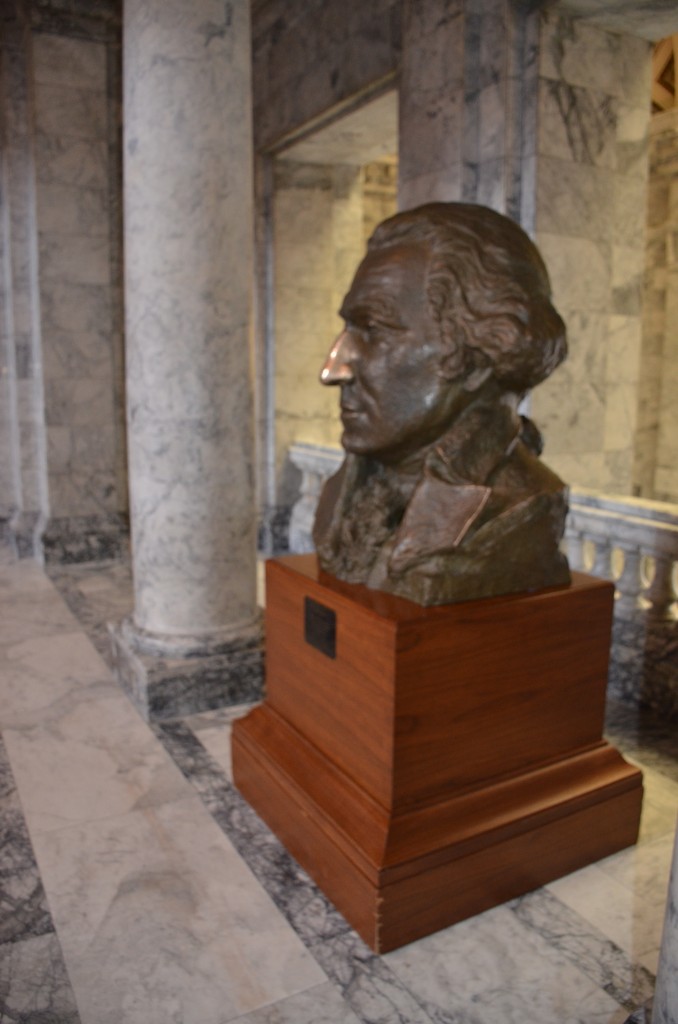 As part of the transportation package, SB 5987 extended a sales tax break on electric vehicle purchases to 2019, but with some changes.As was the case previously, the exemption applies to sales of cars, light duty trucks and other vehicles powered by electricity, natural gas, hydrogen or other alternative fuels. Additionally, it will now cover plug-in hybrids that can travel 30 miles or more on battery power alone, like the Chevy Volt. The tax break was previously uncapped, but responding to pressure about subsidizing luxury vehicles is now limited to new models and sales of $35,000 or less.
As part of the transportation package, SB 5987 extended a sales tax break on electric vehicle purchases to 2019, but with some changes.As was the case previously, the exemption applies to sales of cars, light duty trucks and other vehicles powered by electricity, natural gas, hydrogen or other alternative fuels. Additionally, it will now cover plug-in hybrids that can travel 30 miles or more on battery power alone, like the Chevy Volt. The tax break was previously uncapped, but responding to pressure about subsidizing luxury vehicles is now limited to new models and sales of $35,000 or less.
These incentives are just one piece of the puzzle. This session, WaBA laid out the case for why electric vehicles make economic and environmental sense. Electric vehicle adoption depends on a confluence of factors (gas prices, infrastructure, information, public attitudes, etc.), of which price is only one. In addition to tax credits, the Washington Business Alliance testified in favor of HB 1853, which mandates that the UTC encourage electric vehicle infrastructure build-out (mostly, charging stations). These policies may include, but are not limited to, allowing a rate of return on investment on capital expenditures for Electric Vehicle Supply Expenditures that are deployed for the benefit of ratepayers.
New Technologies in Clean Energy
Clean energy in Washington State scored a legislative victory in the form of a reinvigorated Clean Energy Fund– a top priority of the CleanTech Alliance. The Legislature passed a $40 million Clean Energy Fund extension as part of the Capital Budget. The Clean Energy Fund accelerates statewide expansion of clean energy projects and technologies, such as investments in energy efficiency, advanced solar and renewable energy for manufacturing, smart grid, and R&D. Combined with foreign investment, federal funding, and private capital, the newly replenished Clean Energy Fund will help drive Washington State towards a worthy goal: to become a global hotspot for clean energy R&D.
While it passed the Senate, Senator Sharon Brown’s (Kennewick) bill to pave the way for the newest advances in nuclear energy: small modular reactors, stalled in the house. As highlighted in an article by the Washington Business Alliance, this emerging low carbon technology deserves a second look.
Government Effectiveness
Senator Andy Hill (Renton) proposed a new framework for measuring the effectiveness of government spending by tieing dollars spent to measurable outcomes in SB 5944, the State Money Accountability, Review or Termination (“SMART”) Act. Under SB 5944, all state expenditures must include a Performance Statement, and the Joint Legislative Audit & Review Committee must review the program based on the provided Performance Statement and recommend continuing, modifying or terminating the program, just the way they do now with tax preferences. The concepts underpinning the SMART Act are strongly aligned with PLAN Washington recommendations to better connect government spending to outcomes.
Government effectiveness isn’t just about spending accountability. As evidence by the multiple special sessions this year, the legislative process, in particularly the interface between the governor and legislators is becoming more drawn out and less fruitful. PLAN Washington highlights some strategies for improving this process.
Lowering Health Care Costs
The creation of an All-Payer’s Claims Database in Washington State is a major opportunity to make the health care market work better for consumers. SB 5084 established a database which pools information about health care costs and quality from all third party payers into one place, with the goals of increasing transparency, driving down prices, and boosting quality. The database will also bring a wealth of information to policy-makers, revealing trends and deviations within the market. Ideally, this will open the doors for data-driven policy in health care in the coming years. Senators Randi Becker (Eatonville), Karen Keiser (Kent), and David Frockt (Seattle) were among the bipartisan co-sponsors.
The Washington Business Alliance supported the advocacy of the Washington Health Alliance, a primary proponent of this initiative, and communicated to lawmakers and the public about the importance of this legislation and its implementation going forward.
Rural health care quality will receive a boost with the passage of HB 5175, which will provide reimbursement for telemedicine services to state employees and Medicaid managed care plan enrollees. In a step towards making medical training more accessible, HB 1559 authorized Washington State University to create a medical school in Eastern Washington, where health care professional shortages are acute and access to medical training is scarce. Medical professions are one of the most in demand skill sets.
One casualty of this year’s contentious budget negotiations was the Life Sciences Discovery Fund. This program, a priority of the Washington Biotechnology & Biomedical Association (WBBA), has produced substantial economic and health benefits to our state, and makes vital contributions to the health care sector. As detailed In the Annual Economic Impact of the Life Sciences Report, released by the WBBA, The life sciences sector is the fifth largest industry sector in Washington and one of the fastest growing, with more than 100 new startups in 2014. This cut comes at a time when other states in the region, including Montana and Oregon, are making new commitments to life sciences research, meaning that Washington risks losing a competitive edge and talent.
Investing in Infrastructure
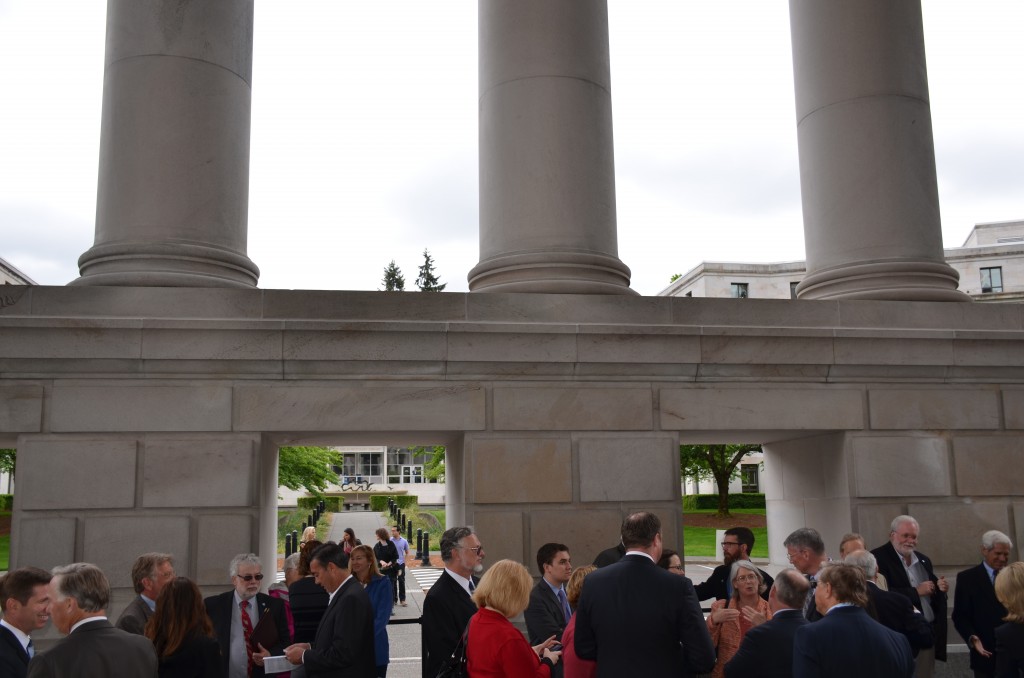 The state is poised to make 16 billion dollars worth of investment in transportation infrastructure over the next 16 years. With the passage of a long-awaited transportation package, new capacity will be added to the state’s major economic corridors, including the Highway 520 replacement, the North Spokane Corridor to I-90, the Puget Sound Gateway Project, a 6-mile extension of Highway 167 from Puyallup to the Port of Tacoma, and an extension of Highway 509 from SeaTac to I-5. These investments were made possible by leadership from the legislators who brokered the compromise: Senators Joe Fain (Auburn), Steve Hobbs (Lake Stevens), and Marko Liias (Mukilteo), as well as Representatives Judy Clibborn (Mercer Island) and Curtis King Yakima), the respective chairs of the House and Senate Transportation Committees. Other notable investments include:
The state is poised to make 16 billion dollars worth of investment in transportation infrastructure over the next 16 years. With the passage of a long-awaited transportation package, new capacity will be added to the state’s major economic corridors, including the Highway 520 replacement, the North Spokane Corridor to I-90, the Puget Sound Gateway Project, a 6-mile extension of Highway 167 from Puyallup to the Port of Tacoma, and an extension of Highway 509 from SeaTac to I-5. These investments were made possible by leadership from the legislators who brokered the compromise: Senators Joe Fain (Auburn), Steve Hobbs (Lake Stevens), and Marko Liias (Mukilteo), as well as Representatives Judy Clibborn (Mercer Island) and Curtis King Yakima), the respective chairs of the House and Senate Transportation Committees. Other notable investments include:
- I-405 from Renton to Bellevue, $1.2 billion to widen the clogged corridor.
- Interstate 90’s Snoqualmie Pass East project, receiving $426 million to finish the six-lane corridor from Lake Keechelus to Easton to provide better safety, lane space and animal crossings.
- Joint Base Lewis-McChord, $494 million for additional I-5 lanes and improved junctions in a chronically congested area.
This is a huge investment, but still falls short of the nearly $50 billion in high-priority projects needed over the next 10 years, as identified in the 2012 final report of the blue-ribbon Connecting Washington task force. In the face of unprecedented growth, the legislature should consider strategies for leveraging private capital for projects not addressed by this session’s package, such as freight rail. We’ll be sharing more about this in the next update to PLAN Washington later this fall.
The transportation package also included several common sense reforms to the management and financing of the state transportation system:
- HB 1170: All sales tax revenue from transportation spending goes back into the transportation fund
- HB 1219 & HB 1851: Authorizing expedited permitting and contracting for Washington state bridges deemed structurally deficient.
- HB 1337: Increasing the flexibility for industrial development district levies for public port districts.
Investments in regional public transit were also a sticking point this session. In the end, the transportation package granted Sound Transit the authority to raise up to $15 billion in 2016 for an expansion of Puget Sound’s light rail system. In addition to arguments over local taxing authority, ST3 conversations centered on the debatable merits of public transit. More focus is needed on the topic of increasing urban density– a critical component of reaping the benefits of public transit.
Over many years the state business community has advocated for an outcome like this. In particular the Washington Roundtable has served as a source for analysis and information on the positive economic impact of these investments.
Eyes on the future
With this session complete, residents can find some satisfaction knowing that the state’s legislators made significant investments in Washington’s future. Transportation infrastructure is set for some much needed improvements. Residents attending courses at universities and community/technical colleges will reap the benefits of reduced tuition. And, more students will gain exposure to computer science starting in K-12.
But, as always, there were many promising bills and ideas that did not make it through the legislature this year. Perhaps the greatest missed opportunity was a hard fought clean energy package with legislative support from both parties containing carbon reduction incentives, solar incentives, and an equitable transition off of imported coal electricity. Washington Business Alliance will continue its work on a broad set of policies that fall within our PLAN Washington framework, with the goal of making Washington a top 5 state by 2025. We will continue to push for smart public policy that generates measurable progress in our state.
Click here to read more about our statewide policy framework, PLAN Washington.
